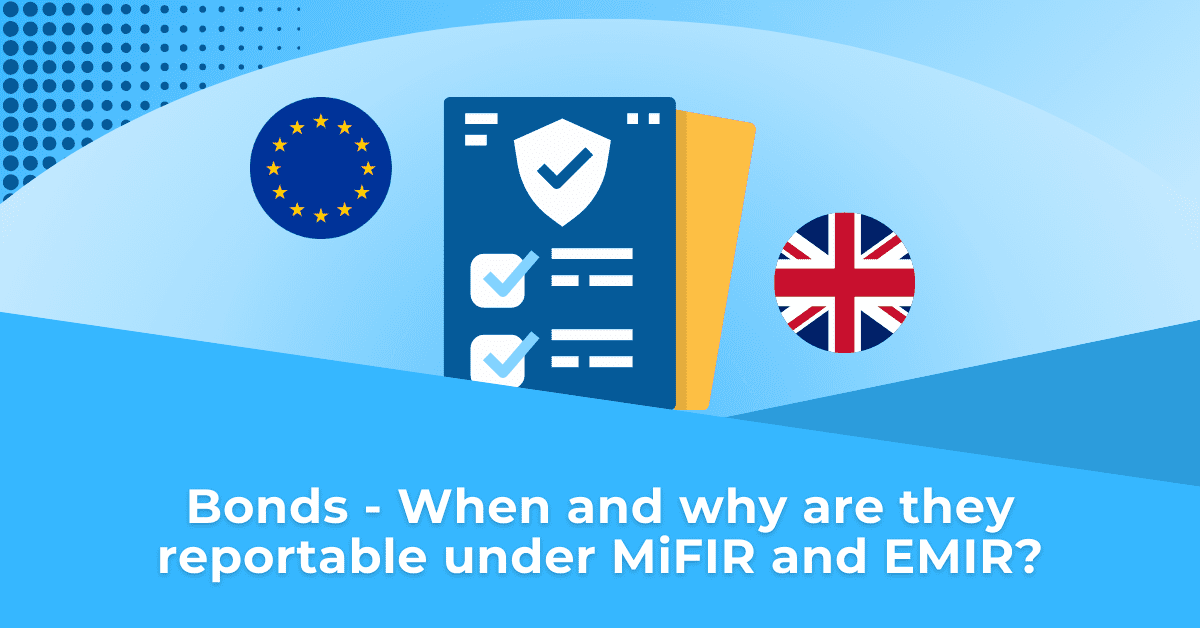As a delegated reporting service provider, TRAction is asked a lot of questions regarding EMIR, MiFIR and SFTR reporting. That’s why our team has put together some of our most frequently asked questions, so that you can learn how to seamlessly report transactions under multiple regimes.
What is the overlap between EMIR, MiFIR and SFTR reporting?
Whilst there is significant overlap in the data that is required for EMIR and MiFIR, especially in relation to the specifics of a transaction (time, price, quantity etc.), EMIR reporting requires data relating to collateralisation. In contrast, MiFIR transaction reporting requires much more granular information in terms of client identification.
SFTR reporting is similar to EMIR in that both regimes aim to monitor risk and transparency. The scope, asset classes and content of transaction data covered by SFTR are quite different to EMIR and also MiFIR. SFTR requires the reporting of repurchase, securities lending or borrowing, commodities lending or borrowing, buy-back/sell-back, margin lending and total returns transactions. Accordingly, no method of reporting adequately conveys the information requirements of the other.
Do EMIR, MiFIR and SFTR reports go to the same place?
No – MiFIR reports are submitted to an Approved Reporting Mechanism (ARM) or direct to the National Competent Authority (NCA). EMIR and SFTR reports are sent to trade repositories (TR). There are some entities which act in the capacity of both an ARM and a TR.
Do I have to report transactions separately under both EMIR and MiFIR?
Yes, as EMIR and MiFIR have different requirements and the regimes were developed for different reasons, you may find that both regimes require a single transaction. For example, an OTC derivative that has an underlying instrument that is venue traded (e.g. a company listed on the London Stock Exchange) will be reportable under both regimes by virtue of being a derivative (in-scope for EMIR) and having a venue-traded underlying instrument (in-scope for MiFIR).
What are the objectives of each regime?
EMIR and SFTR focus on the reduction of systemic risk and helping prevent future financial system collapses, whereas MiFIR is centred on the detection of market abuse, strengthening investor protection and increasing the efficiency of the financial markets.
Do I identify my counterparties in the same way for all regimes?
| Counterparty Type | EMIR | MiFIR | SFTR |
|---|---|---|---|
| Corporate | Legal Entity Identifier (LEI) | LEI | LEI |
| Individual | Always ‘Counterparty 2’ –
Client code of up to 72 alphanumeric characters. The code identifying a natural person is to consist of the LEI of counterparty 1 followed by a unique identifier assigned and maintained consistently by counterparty 1 for that natural person(s) (for reporting purposes). |
Can be either a ‘Buyer’ or ‘Seller’ –
The identifier codes vary per jurisdiction, refer to Annex II of RTS 22 for further information. |
Always ‘Other counterparty’ –
An internally allocated client code up to 50 alphanumeric characters. The client code should be specified in a consistent manner. (As the Regulatory Oversight Committee (ROC) of the Global LEI System (GLEIS), individuals acting in a business capacity are eligible to obtain LEIs if they can verify their business activity in a business registry.) |
Can I report trades for EMIR, MiFIR and SFTR with one service?
By delegating your EMIR, MiFIR and SFTR reporting to the same third party, such as TRAction, you will reduce the need to produce three separate data flows that incur significant data repetition. A specialist trade reporting service provider can improve compliance by determining the reportability of your transactions under the different regimes on your behalf and route your submissions to the designated ARM or TR. It is also likely to reduce your organisation’s expenditure and burden on internal compliance teams as opposed to maintaining separate relationships with an ARM and TR.
How can TRAction make it easier to report for all regimes?
TRAction’s regulatory trade reporting solution covers multiple reporting regimes so that the costs and resource burden for investment firms can be reduced. Reporting through TRAction can save you time and money by streamlining your reporting under EMIR, MiFIR and SFTR.
Please contact us if you would like to know more about how to simplify your reporting for multiple regimes.




